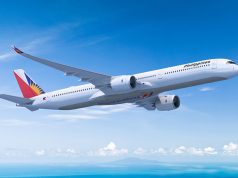
A tweet from artist Gary Valenciano about “Philippine time” and the concept of being late renewed discussions about the public transport crisis, worsening traffic conditions in Metro Manila and other cities, discipline and other issues.
“Mr. Pure Energy” on Sunday said that he “feels bad” when the phrase “Philippine Time” is “mentioned and is used on a person who simply doesn’t arrive on time.”
“Sad ‘no? Guys? Even when traffic is bad… we can still find a way to arrive on time. Kaya natin ‘to,” Gary wrote.
Friends? I feel bad when the term “Philippine time” is mentioned and is used on a person who simply doesn’t arrive on time. Sad no? Guys? Even when traffic is bad…we can still find a way to arrive on time. Kaya natin ‘to.
— GARY VALENCIANO (@GaryValenciano1) January 22, 2023
The performer’s opinion earned approval from some Pinoys who said that “time management” is important in going out.
“Tama. Leave early to arrive on time. Time management and self-discipline [are] a must dito,” a Twitter user commented.
Others said that being punctual is an indicator of respect.
“For me, it’s always about respect. Respecting your time and theirs. If they don’t arrive on time [without] reason, they think their time is more valuable than yours, consciously or not. On the other hand, if you are late, you don’t respect yourself enough to be true to your word,” writer Phil Alegre wrote.
“Arriving on time for an appointment or commitment boils down to discipline and yes, respect. Hindi lahat meron. Minsan, mismong mga Boss ayaw galangin ang oras ng subordinates. Sad. Really sad,” another Twitter user said.
“The solution is in preparing AHEAD of time. If you know traffic’s going to be congested, then perhaps you should leave earlier or perhaps find a different route. Of course, this doesn’t apply to everything since we also have to account unforeseen [and] unavoidable circumstances,” wrote a different user.
Some, however, argued that there are also other factors at play in terms of being late. These include the public transport crisis and the perennial traffic in the metro and in other urban areas.
“It’s not always the case, sir, especially for people who aren’t privileged enough to have a car. Being stuck in traffic is one thing, waiting for a ride is another,” a Twitter user commented, referring to commuters.
“While I understand that this is well-intentioned, this is simultaneously seemingly tone-deaf to the public transport challenges regular commuters (the bulk of our country’s workforce) are facing. Easier said when one doesn’t have to spend long hours just to go to work or get home,” another Pinoy said.
“I appreciate the optimism in this; however, if the condition of the public transportation system will not improve, the commuters will continue to struggle to arrive on time. Imagine waiting to get a ride for HOURS and travel from one city to another for HOURS, too,” a different Filipino tweeted.
This was not the first time a similar opinion from a personality earned arguments.
In 2019, former presidential spokesperson Salvador Panelo told commuters to “be creative” if they wanted to beat the metro’s constant traffic congestion problems.
Panelo’s remark came after he took the challenge of progressive groups to commute to Malacañang when he denied that there was a mass transport crisis.
The former spokesperson suggested that Filipinos needed to “leave early” but this was deemed insensitive by others, who claimed to still encounter traffic despite adjusting their travel hours.
Among these was an English language trainer who was interviewed by Philstar.com before. According to her, she leaves home three hours early to be on time for her shift.
This has led her to develop difficulties in breathing and physical pain in her back because of the uncomfortable trip she had to endure every workday.
Last year, it was revealed that Manila was the eighth worst in the world in terms of hours spent in traffic among cities.
An insurance technology firm said that the Philippine capital has a 43% congestion level and 98 hours lost to traffic annually, or more than four days that Filipinos spend in the Metro’s infamous traffic jams every year.
In 2018, the Japan International Cooperation Agency in a study said that traffic costs the Philippines P3.5 billion in “lost opportunities” daily. The amount is expected to triple in number by the year 2030.
What is ‘Filipino time’?
An expert said that the concept of “Philippine time” or “Filipino time” can be traced to the Spanish colonial period.
This refers to the state of being habitually late for minutes to hours as compared to the standard time.
Louie Benedict Ignacio, chair of the University of Santo Tomas’ Department of Sociology, previously said that being late was once considered a social status in those times.
“Noong panahon ng mga Kastila, ang huling pagdating o pagiging late sa mga okasyon ay isang ‘status symbol.’ Kaya naman ginaya ito ng mga Pilipino sa pag-aakalang importante sila para hintayin,” he told Esquire Philippines in 2020.
According to Fr. Miguel Benard, the phrase “Filipino time” was coined by the next colonizers — the Americans.
He said that they were irritated by the Filipinos’ lack of punctuality, rooted in being colonized by Spain for over 300 years.
The term has since been synonymous with the habit or the concept of habitually arriving late.









